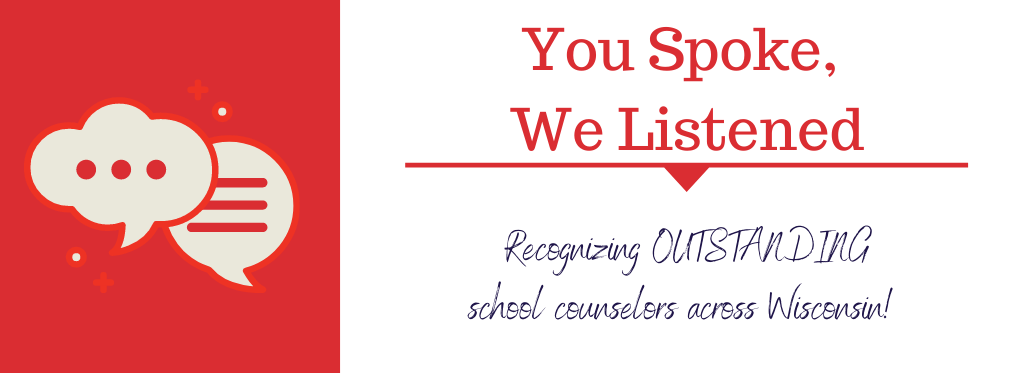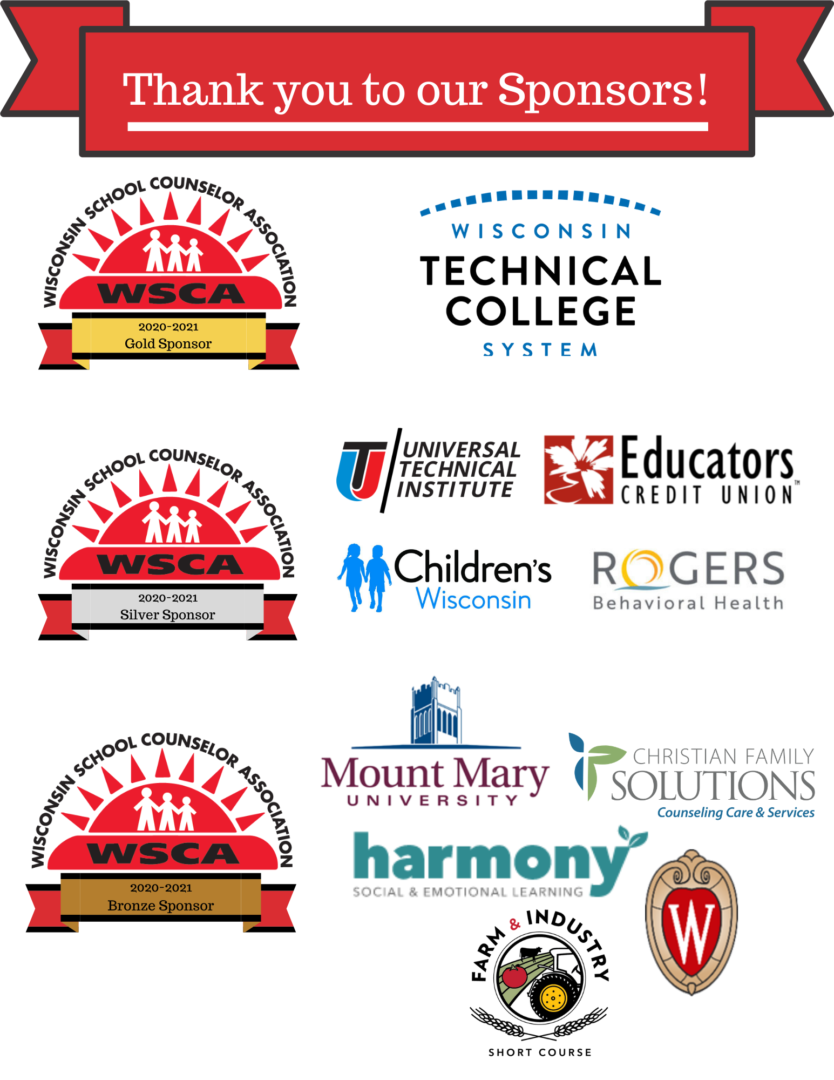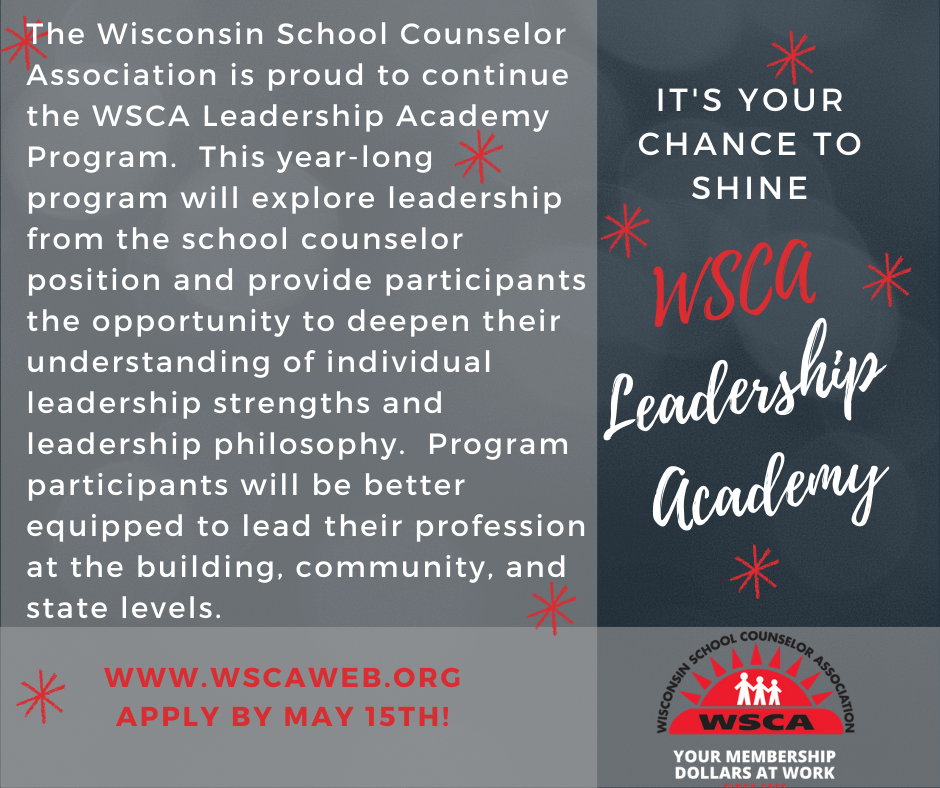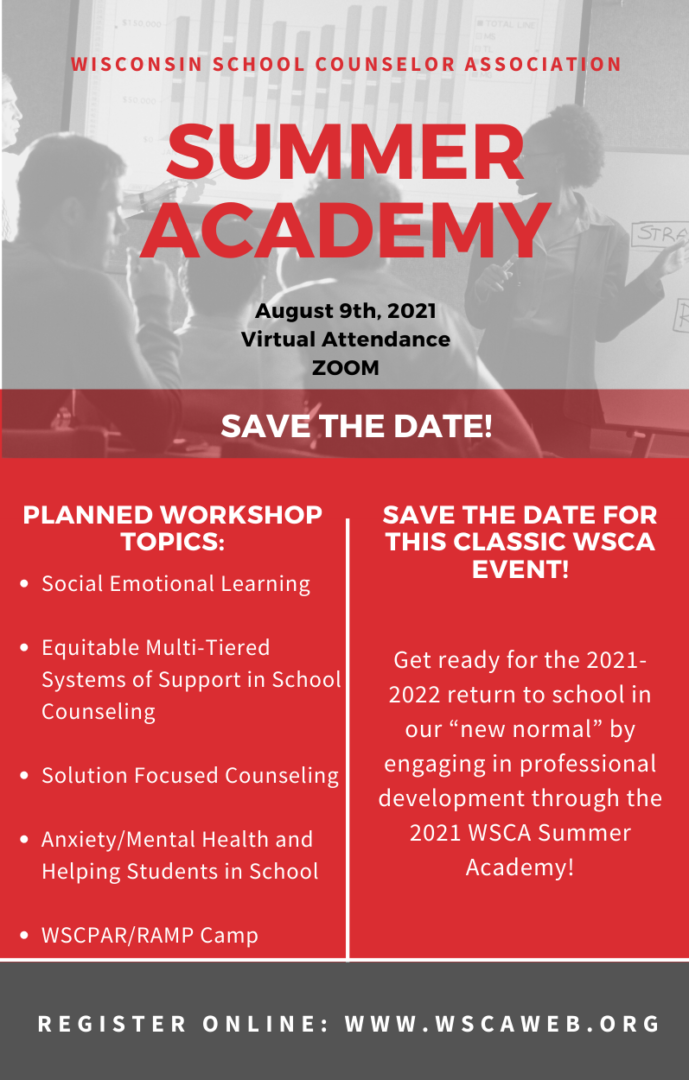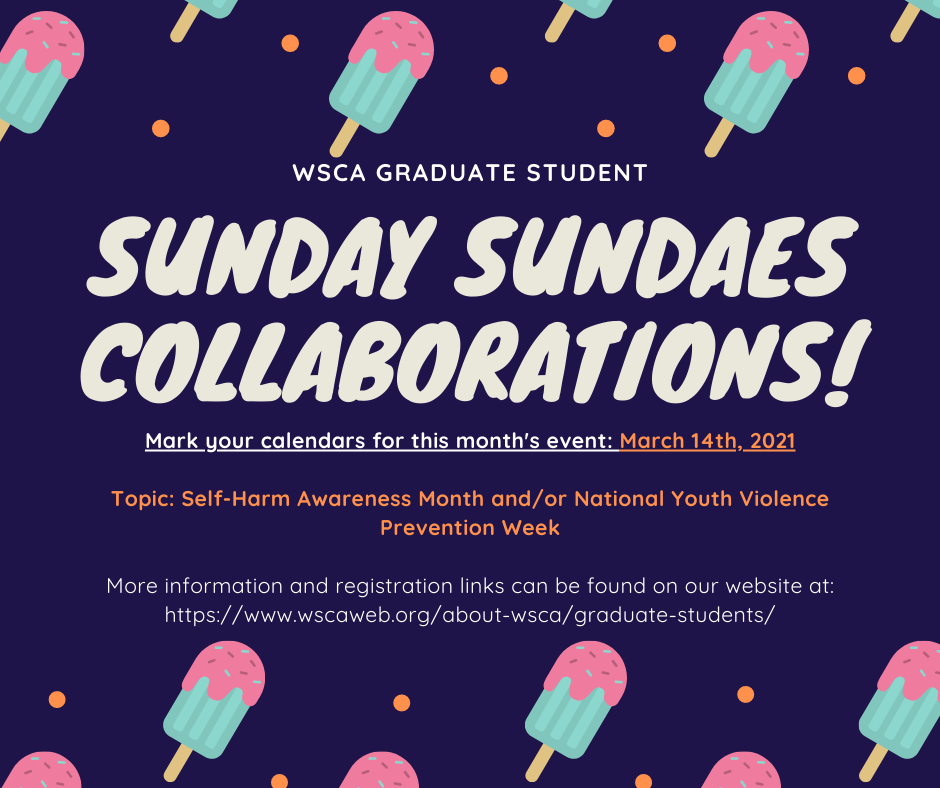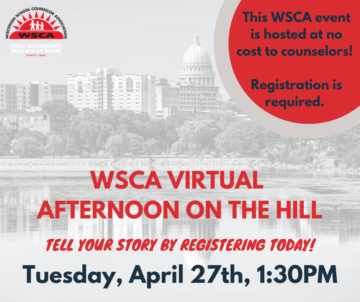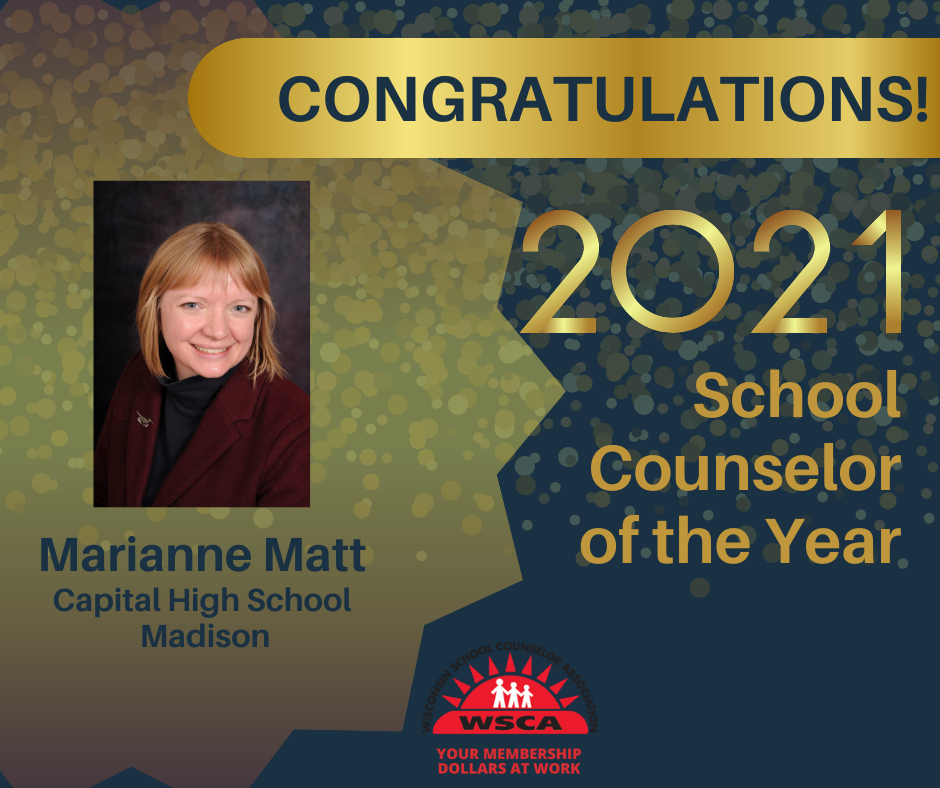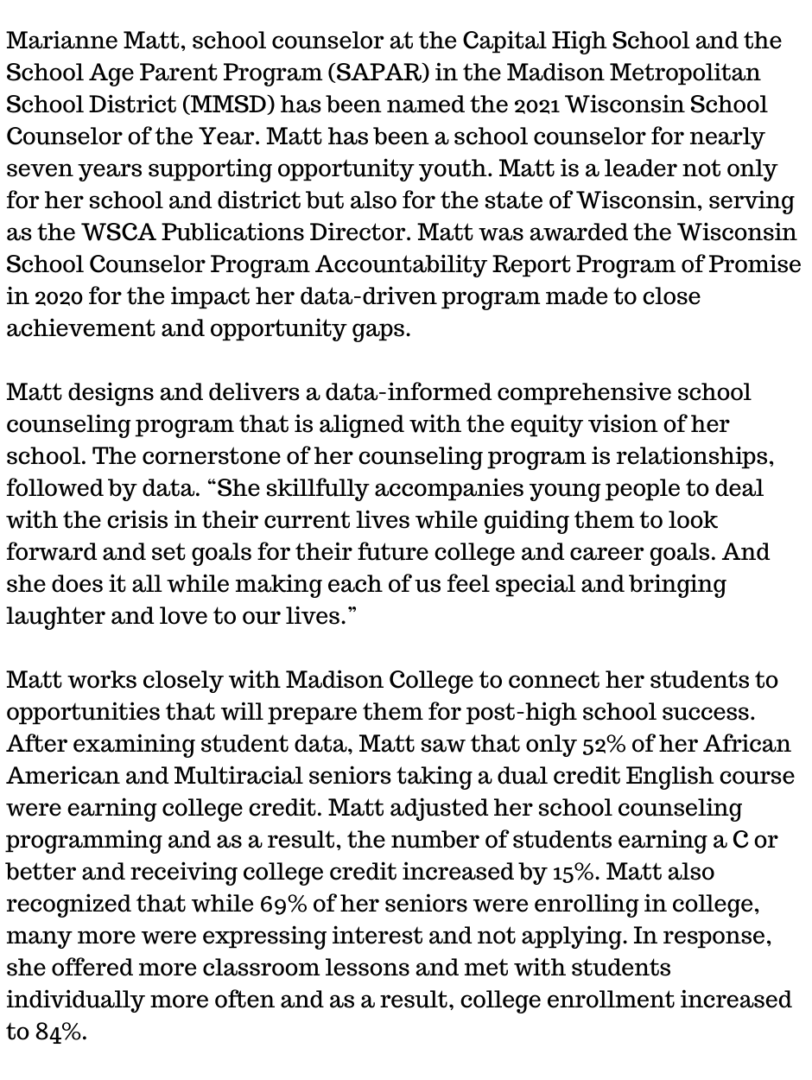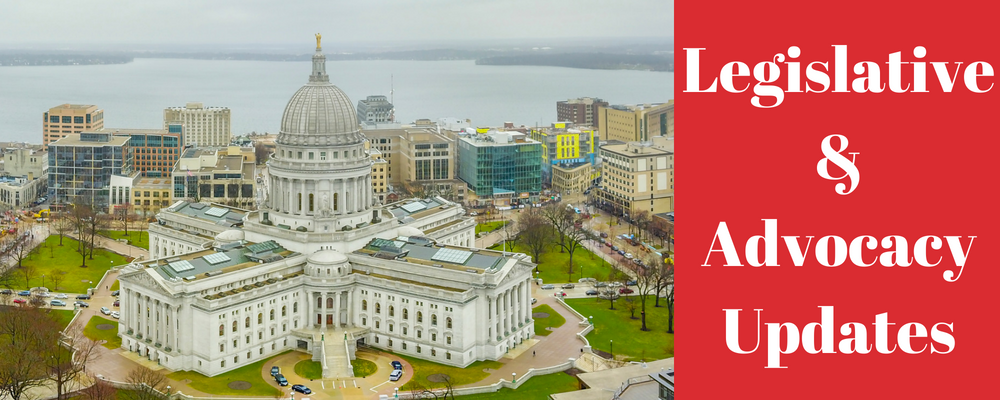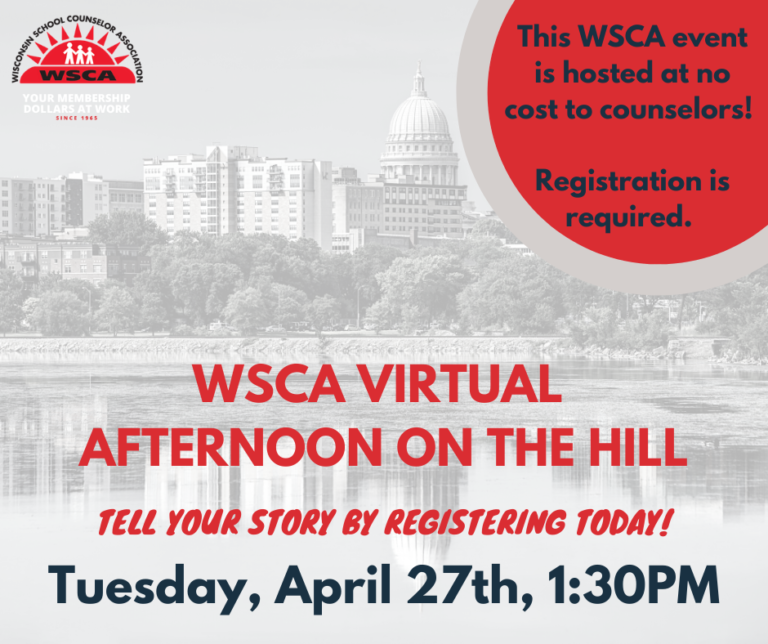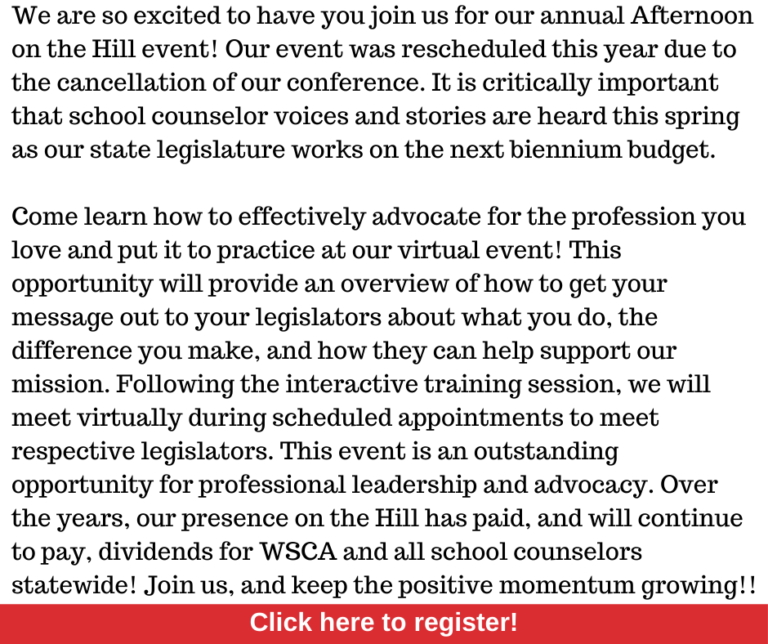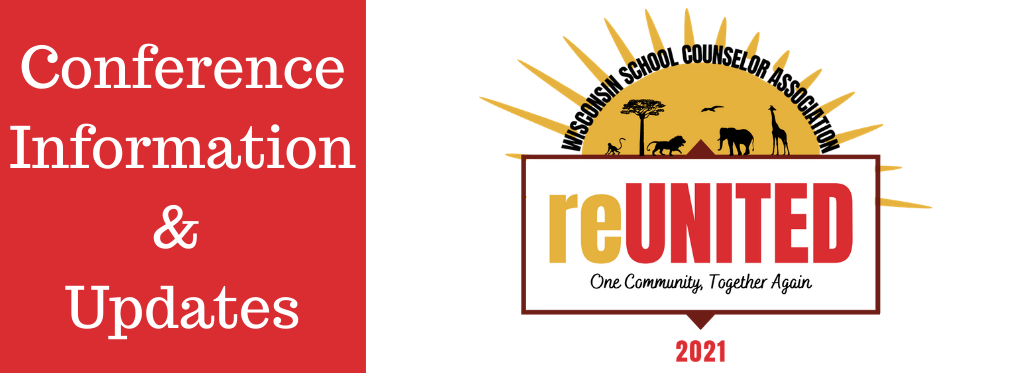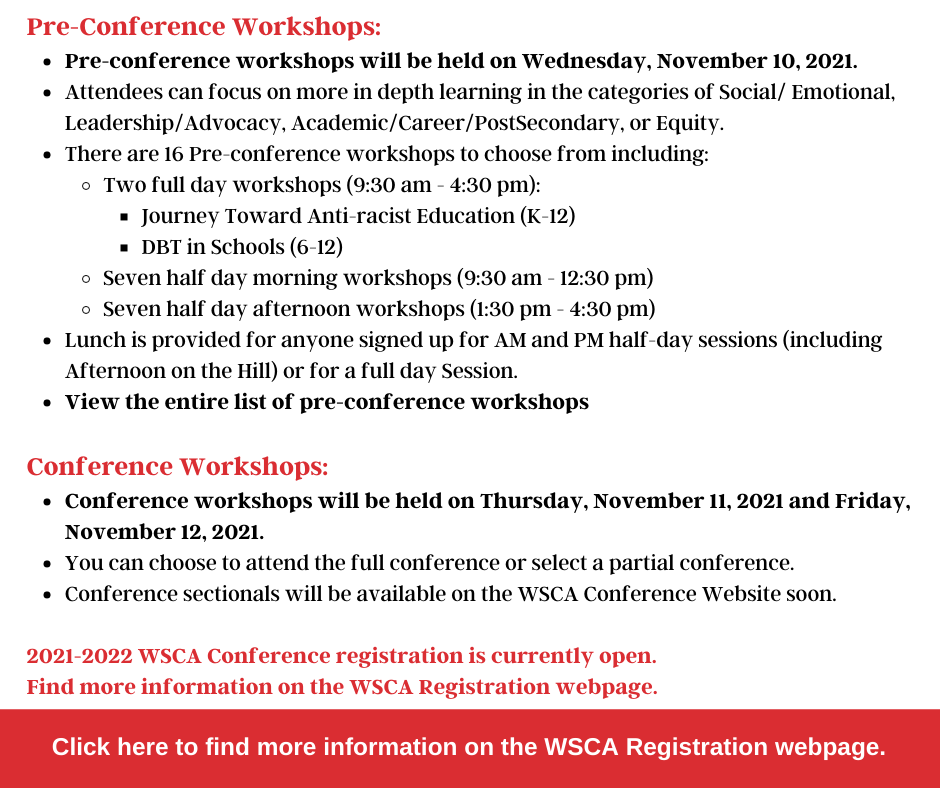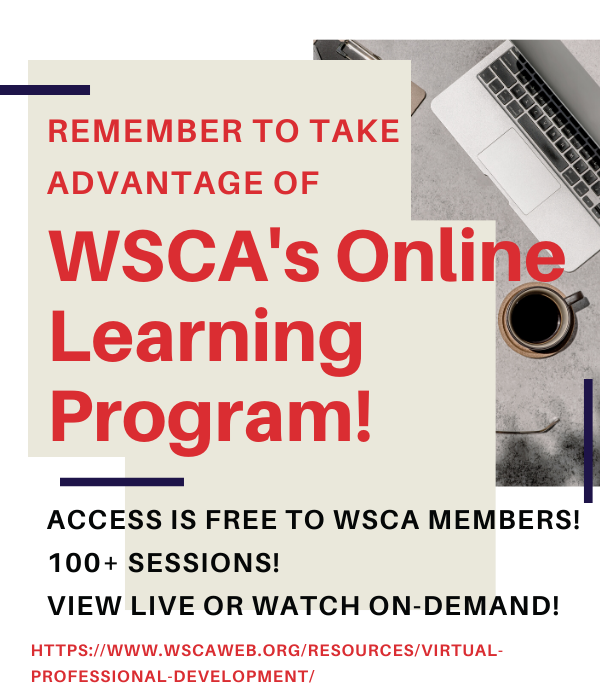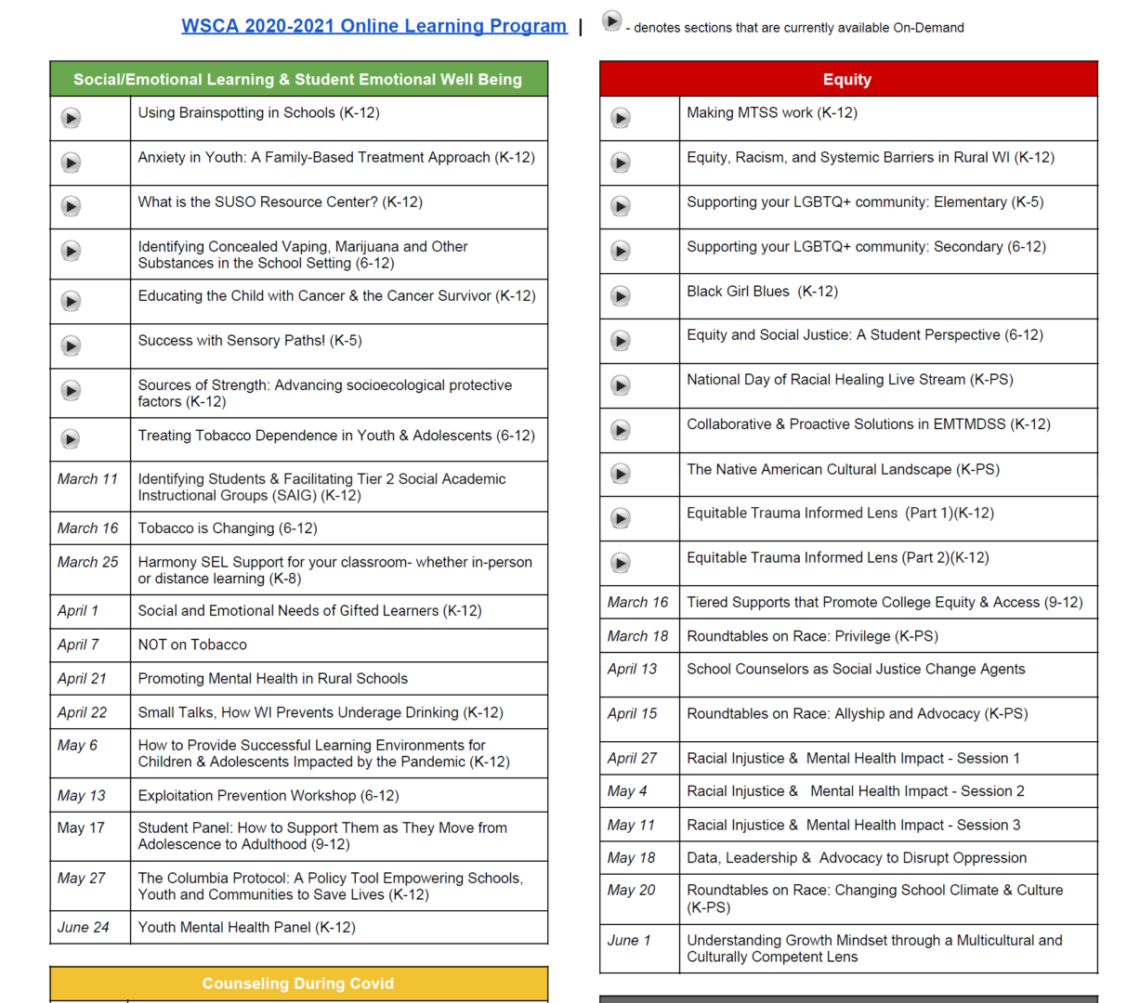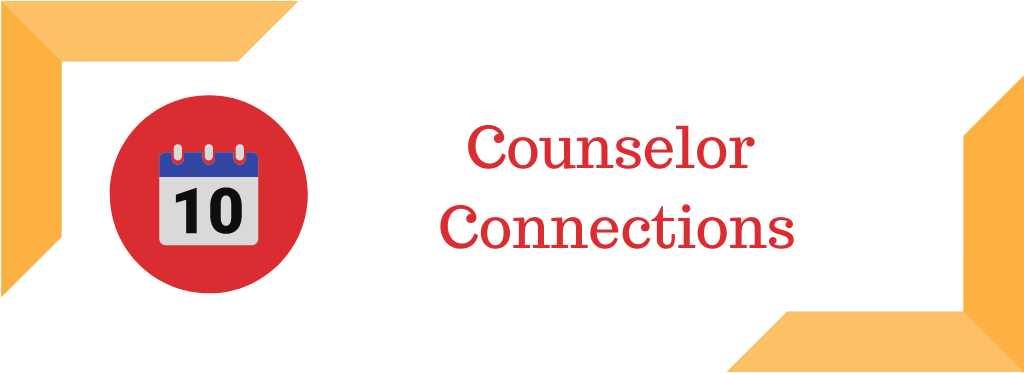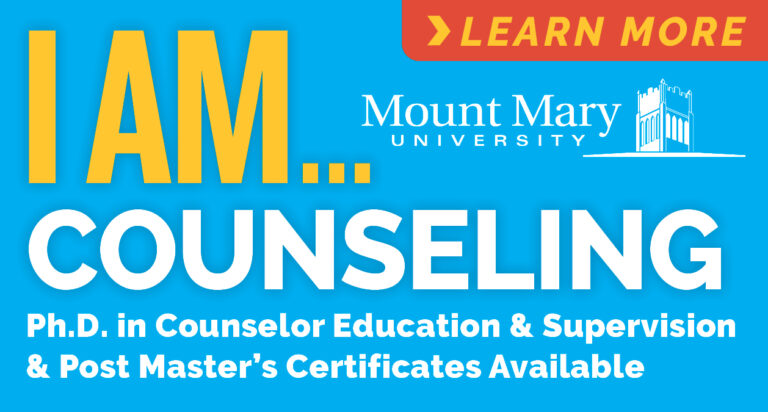
A message from the WSCA Executive Director

Dear WSCA members,
It looks like we are finally turning the corner with spring in the air and some return to normalcy as more Wisconsin residents are vaccinated. We set the themes for our newsletter a year in advance and the theme for this month is on the minds of counselors as you support your students in these last weeks of the school year.
My message this month is short and sweet as you are all so busy with your students, schools, and own families. Below are a few highlights of resources that WSCA has been a part of to support you so that you can support your students. These opportunities are available to Wisconsin counselors because of your commitment and involvement with WSCA. Thank you for trusting us to help you.
Stacy
When Schools Go Dark, School Counselors Shine: School Counseling During a Global Pandemic
American Institutes for Research (AIR) is one of the world’s largest behavioral and social science research and evaluation organizations. WSCA was one of the state School Counselor Associations interviewed as well as several Wisconsin school districts.
“As educational digest and newspaper headlines can attest, COVID-19 is affecting the mental health and academic achievement of students across the country. School counselors are uniquely positioned in schools and districts to provide access to many of the supports that help bolster the well-being of students and allow them to be present and succeed academically.
This brief profiles efforts by two state school counseling associations, four districts, and 13 school counselors to meet the needs of students and families during these unprecedented times. With this review, we sought to understand how school counselors responded in the short term when schools were closed due to COVID-19, as well as the planning that ensued as schools prepared to open for virtual, hybrid, and in-person instruction in the fall of 2020. We also asked counselors about the practices and policies they have adopted during this crisis that they would continue to use even after schools return to consistent, in-person instruction.”
Students Try to Cope as Pandemic Strains Mental Health
WebMD Health News wrote an article on the impact of student mental health during the pandemic. WSCA was called out in the article for our partnership with the California Association of School Counselors to create the https://covid19k12counseling.org/ website.
“Whitson says schools are likely to take a variety of approaches. These include calming rooms, giving teachers lessons on mindfulness and deep breathing, coming up with interventions and counseling groups to identify students who are struggling, and making sure staff has access to tools to teach a variety of social and emotional learning lessons. Her organization, the California Association of School Counselors, partnered with the Wisconsin Association of School Counselors to create a website for K-12 teachers that offers lessons and resources for counselors looking for ways to support students’ mental health. So far, 50,000 users from more than 60 countries have visited the site.”
https://www.webmd.com/lung/news/20210324/students-try-to-cope-as-pandemic-strains-mental-health
WSCA Online Learning Program
WSCA invested heavily to provide flexible professional development for our members. There are over 100 online learning sessions from state and national experts designed to help you support your students, families, and school communities. Take a look at the upcoming and on demand sessions in the area of Emotional Well Being and Counseling during COVID. Access to the online learning program will continue through the end of July.
https://www.wscaweb.org/resources/virtual-professional-development/

A message from the WSCA Board of Directors

Tricia Norby-School Counselor & Director of Early Childhood Education, St. James School
Many school counselors across the state report higher mental health needs in their schools this year—in both students and staff. Some schools have been in person all year, some are returning this month, and some have gone back and forth between the two. Given the higher than ever need for school counselors, I am hearing that many districts are reducing counselors’ hours and/or cutting positions entirely!
One way to show the value of our position is the use of data. Our time may have been spent differently over the last year, but that doesn’t mean it has been less effective. I know that I haven’t been as diligent in data collection this year as I could have been but even being able to speak to what your last week looked like can be helpful (I taught 10 classes, met with 14 students (on academic concerns, bullying, depression, suicide ideation, and classroom behaviors), consulted with 4 parents and 8 teachers, set up virtual career day with 6 speakers, and mediated student issues on 3 occasions). In addition to participation (process) data, sharing information on how you impact attendance, discipline, and academic achievement of your student’s tremendous value counselors bring to the school community. You want your stakeholder groups to see the critical importance of your position and leave them wondering who would take over these tasks if you weren’t there.
Are there stakeholder groups that can advocate for school counselors on your behalf? Student groups, the PTA, community organizations, universities, or even individual parents who could provide anecdotal evidence–a story of how your contribution positively impacted one student or one group of students. Personalize your position.
The WSCA Board participated in a book study during our January meeting. We all read the book, Just Mercy, by Bryan Stevenson. Mr. Stevenson does an amazing job of showing the inequities that exist in our criminal justice system. He makes it personal by introducing us to real people who were failed by a system that is supposed to be fair for all but showed instead that wealth and poverty are more closely tied to justice than equality under the law.
Just as Mr. Stevenson has done, not only show your stakeholders the personal impact you are making on your students and staff, but frame this as an equity issue. The common goal of helping students overcome learning losses and mental health impacts from the last year is critical to the overall well being and success of schools. Cutting school counselors will not help with either of these two areas.
Equity & Research
Socially Responsible Evaluation in Education
Curtis Jones, is a senior scientist at the University of Wisconsin-Milwaukee. His research indicates the need for our most at-risk students to receive more support, below are some articles highlighting his research.
https://wisconsinwatch.org/2021/01/as-semester-ends-in-wisconsin-covid-19-fears-shrink-while-concerns-of-academic-slide-grow/
Using Data to Improve Schools Project, Essentials of School Culture and Climate (ESCC) survey https://uwm.edu/sreed/udisp/
Counselor Ratios
ASCA counselor ratio infographic:
https://www.schoolcounselor.org/getmedia/a07648aa-5e94-4601-8341-9824ad782985/Ratios-Student-Outcomes-Infographic.pdf
Ed Trust article on the importance of counselors and access via ratios:
https://edtrust.org/resource/school-counselors-matter/

Group Counseling Considerations: With or Without a Pandemic
Stacey Miller & Paula Haugle
Buford City Schools & Menomonie High School
As a part of a schools comprehensive school counseling program, group counseling is effective at improving a variety of issues including academic, career, and personal/social issues. There are multiple studies that show how groups increase social support and decrease sadness and anger. While groups allow for students to support one another they also allow for the counselor to provide skills while seeing students regularly. School counselors know the benefits for providing small group counseling, however, scheduling and group themes can present as a challenge.
Group Topic & Group Selection
Counselors wonder what groups to run for their school counseling programs. One of the best ways to decide what small groups to run is based on the needs of the school. There are a variety of ways to figure this information out. One way is through the school data or MTSS meetings. For example, if the school counselor is working on attendance based on the data then an attendance group could be a way to support this goal. If there were a large number of deaths that year for your families then running a small group makes sense instead of pulling these students at various times.
Small groups can be based on similar issues or concerns such as an academic group or a family changes group. Another idea is a hybrid small group that might have a theme on resilience or leadership. Students are selected based on a variety of criteria however the benefit of this small group is that you don’t have a group full of students who have the same issues which lacks a role model. One way to get teacher input is by either sending out a student concern form that is completed on students they are worried about and the reason. Not all students might need a small group but it gives more data to students who are struggling.
Content
It can be challenging to figure out the best content for small groups. We are in a day of information overload so while teachers pay teachers or pre-purchased groups can be a time-saver, it is important to know what you are trying to accomplish. Start by looking at what challenging behavior or skill deficits the students lack. By using the ASCA Mindsets and behaviors or WI Social Emotional competencies you can select a few of your students in the small group need. This will help drive the content but can also be helpful for assessing the small groups effectiveness. We also need to be cognizant and make sure the curriculum we are using is research and evidence-based, as well as culturally sustaining. The content in Teachers Pay Teachers has received much criticism for not being equitable.
Scheduling
Scheduling can become an obstacle for small groups. At all levels, it is best to avoid core instruction of math and reading. Students will also be disengaged if you are pulling them from recess or specials. Some groups are one time a week for a few weeks while others might work better to see the students daily for 2 weeks. Lunch time can work for students as far as not missing core instruction however build in time to eat and socialize which means adding additional time at the beginning or end of their lunch period. At the middle and high school levels, study hall, homeroom, or resource time can work well. If that is not available, a rotating schedule of pulling kids from only one class over a few weeks (instead of the same class each time) is a good compromise as well. Knowing your building staff and students will help to come up with a schedule that works for all.
Featured Online Learning Session
We highly recommend this session from WSCA’s online learning platform (currently FREE for all members) “Identifying Students & Facilitating Tier 2 Social Academic Instructional Groups (SAIG)” from March 11, 2021. In this session, Jon Jagemann from Milwaukee Public Schools describes how they use data and teamwork to identify and implement SAIG groups, which help students build skills. MPS also has their SAIG group curriculum readily available – and FREE – for all levels (elem, middle and high).
Groups during the Pandemic
Living and working through a global pandemic has brought about many challenges. For schools that have been able to be in person, several things need to be considered when conducting group counseling. Can we meet in the same room and maintain safety? Is there a space available that will meet our needs? Are we choosing a group topic that is most needed during this unique time? What do we do if students or the group leader need to quarantine?
These are questions we would have never guessed we would need the answers to before 2020, but this is the reality of how we must plan instruction and counseling services today. Work with teams and colleagues within your building to find the answers to these questions that work the best for your situation. If the pandemic has taught us anything, it’s that one size does not fit all.
Schools that have been operating virtually have a different set of questions to answer. How will I reach the students who need services? Do they have reliable internet? How can I maintain confidentiality when we can’t guarantee who may be hearing the conversations? Am I practicing in an ethical manner?
WSCA partnered with the California Association of School Counselors and created a comprehensive website with a wealth of information and resources for educators to support students and families during the pandemic https://covid19k12counseling.org/. WSCA also has an entire track in the online learning program dedicated to counseling during COVID with state and national experts sharing their knowledge and resources https://www.wscaweb.org/resources/virtual-professional-development. ASCA has also compiled many resources for school counselors during the pandemic:
https://www.schoolcounselor.org/Publications-Research/Publications/Free-ASCA-Resources/COVID-19-Resources .
This is meant to be a starting point, and as mentioned earlier, you will need to make decisions that are best for your students in your building. Last spring, I was able to conduct a small group on divorce for elementary students. Given the sensitive nature of the topic, I chose to keep the group interactions primarily educational, and then scheduled one on one meetings virtually to discuss personal topics with students. I made sure that students and parents were informed, and the parents gave their consent. It wasn’t perfect, but at least the students received the content they needed.
By following the ASCA National Model, including data-driven decision making and targeted mindsets and behaviors, we can all provide group counseling services to our students who need it in an ethical manner.
You Spoke, We Listened
